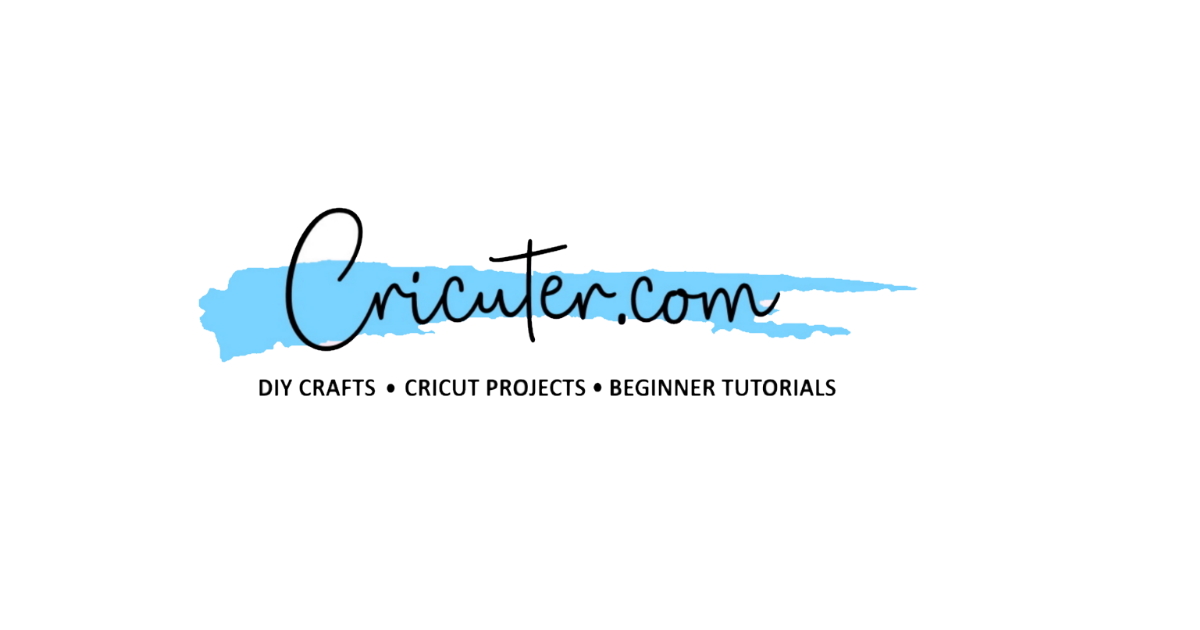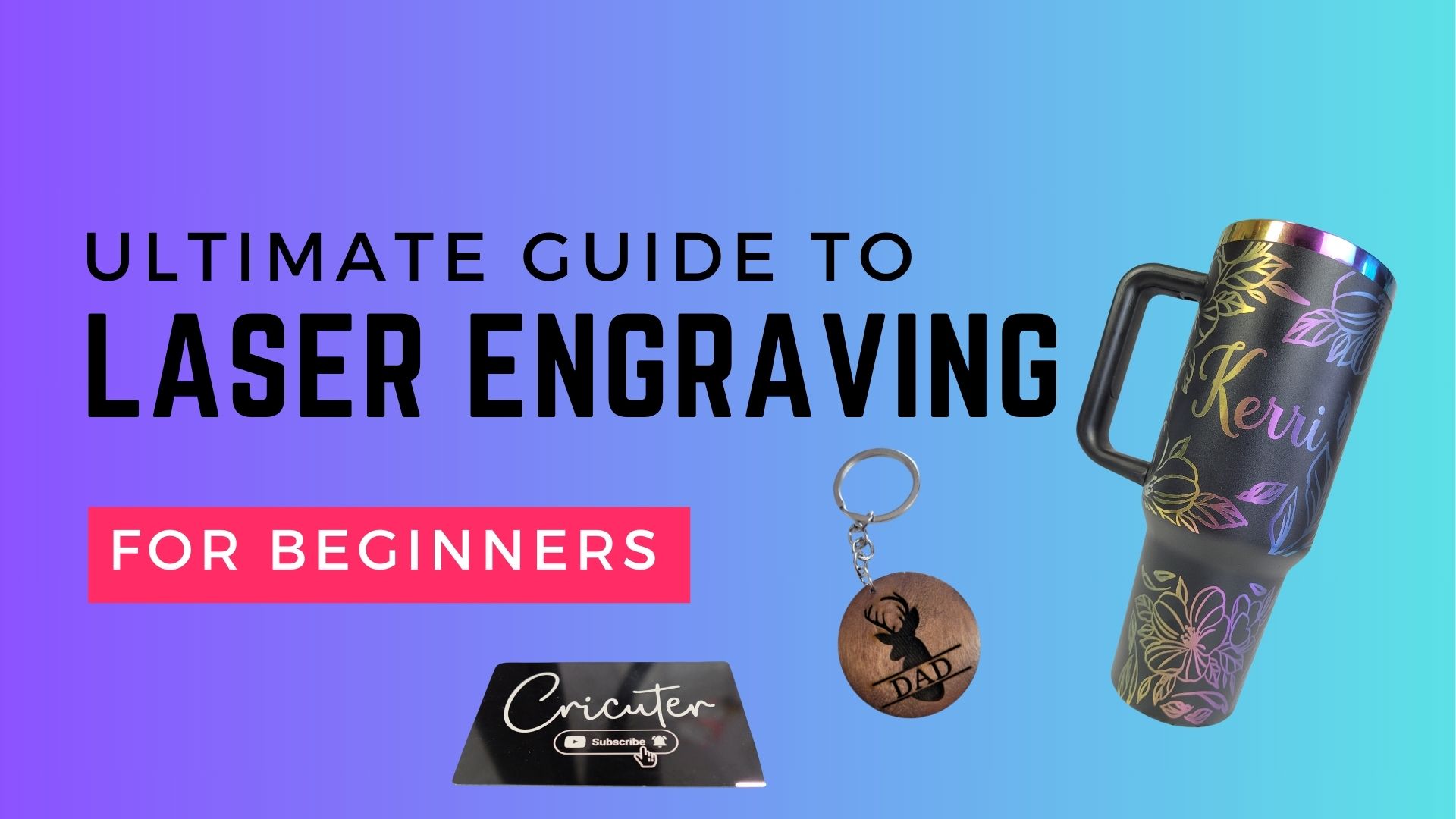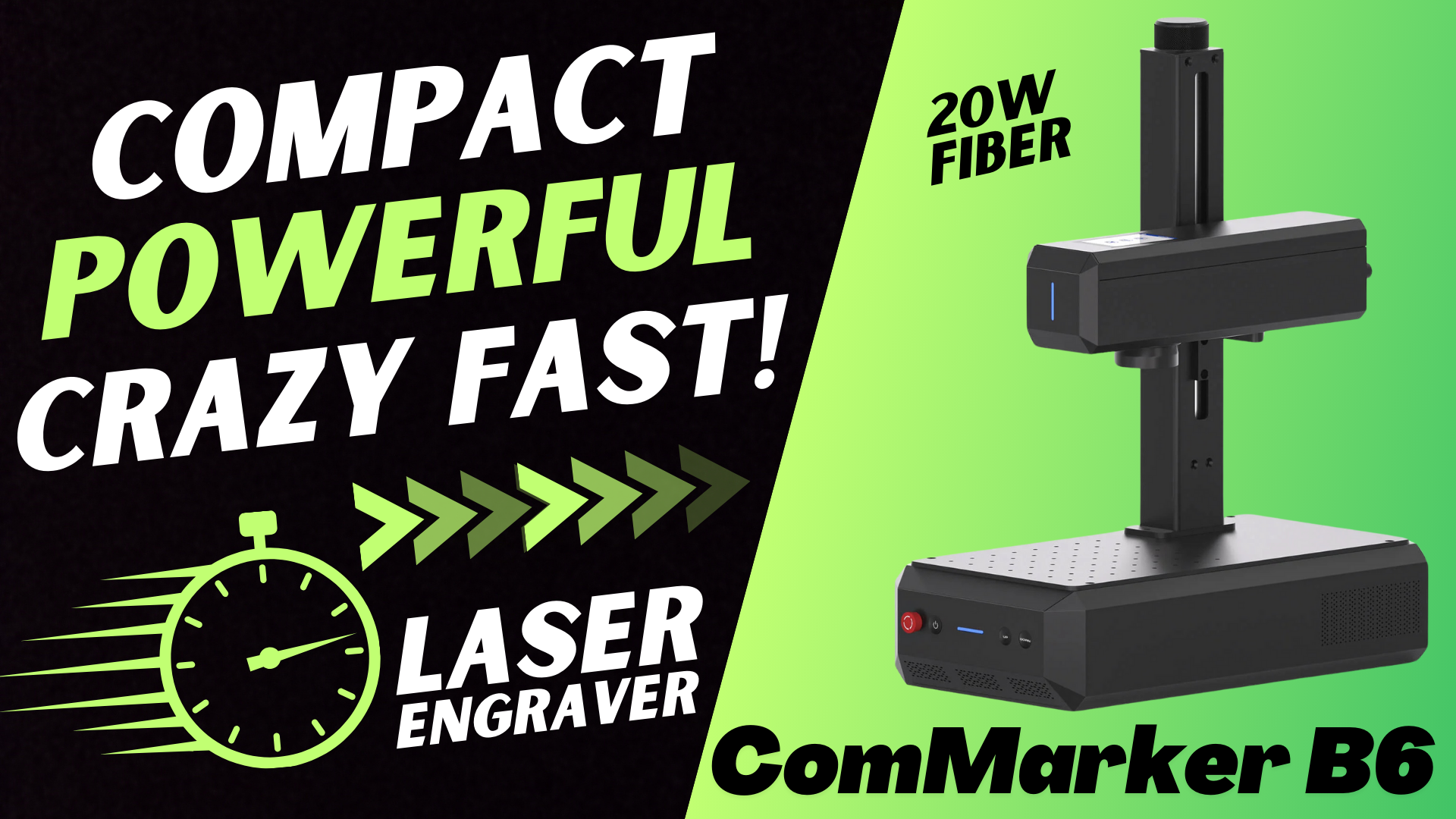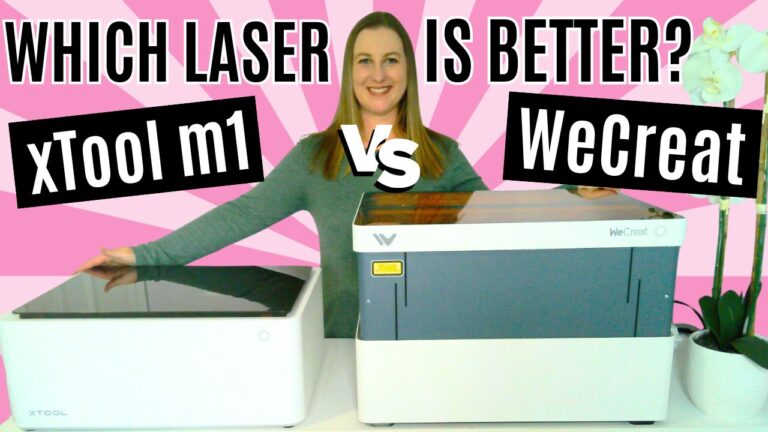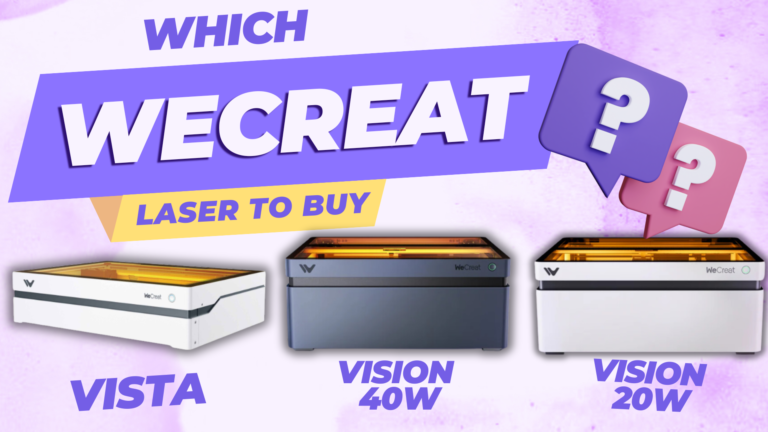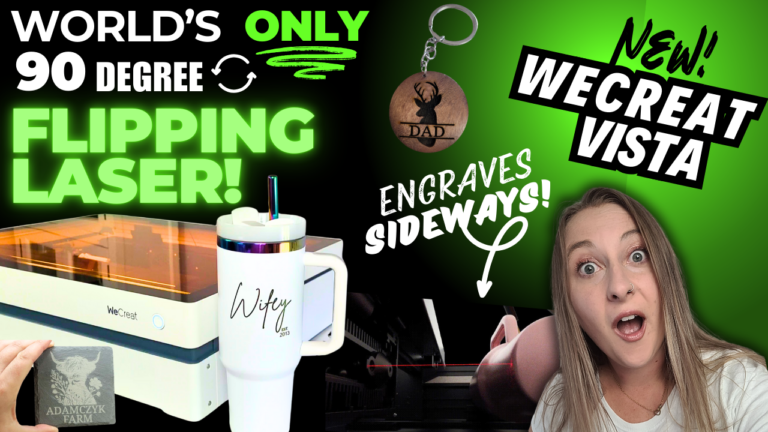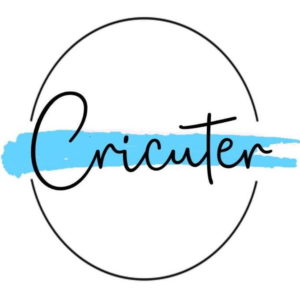Laser Cutting And Engraving for Beginners: Your Easy Guide to Getting Started
If you’ve ever wanted to create amazing crafts, decorations, or custom gifts with a laser cutter, you’re in the right place! Laser cutting might sound high-tech, but it can be easy and fun once you know the basics.
In this guide, we’ll walk you through everything you need to know to get started, including how to choose the right machine, how laser cutting and engraving works, and some cool projects you can make. Ready to dive into laser cutting? Let’s go!
What Is Laser Cutting and How Does It Work?

Laser cutting, also called Laser Engraving, is a method that uses a super-focused beam of light (the laser) to cut or engrave different materials. Think of it like a very precise, computer-controlled knife.
The laser can cut through materials like wood, acrylic, and even leather, or engrave detailed designs on surfaces without cutting all the way through.
The secret to laser cutting is that the laser beam is extremely hot. It moves across the material, cutting it or vaporizing the surface to leave a mark. This precise control makes it possible to create super-detailed designs that would be really hard to make by hand.
Choosing the Right Laser Cutter for Beginners
If you’re a beginner, it’s important to pick a laser cutter that is easy to use but powerful enough for the projects you want to try. Here are a few options to consider:
- Desktop CO2 Lasers: These are great for beginners because they are small and versatile. They can cut and engrave a wide range of materials, including wood, acrylic, and fabric.
- Diode Lasers: These are usually more affordable and work well for engraving wood and plastic. They are a good choice if you’re just starting out and want to try laser engraving without a big investment.
- Fiber Lasers: These lasers are great for engraving and marking metals, making them ideal for projects involving stainless steel, aluminum, or other metals. They offer high precision and are suitable for more industrial applications, while still being beginner-friendly with the right guidance.
Make sure to consider what kind of projects you want to do and choose a laser cutter that can handle those materials.
For more in depth information, check out our article on the Ultimate Guide To Buying The Best Laser Engraver For Beginners
Getting Started: How to Set Up Your Laser Cutter

Setting up your laser cutter can feel a little intimidating, but it’s actually pretty simple once you break it down. Here are the main steps:
- Find the Right Spot: Your laser cutter should be in a well-ventilated area, ideally near a window or an exhaust vent, since cutting can produce smoke.
- Connect Your Computer: Laser cutters work by following designs you create on your computer. You’ll need to install the laser cutter’s software and connect it to your computer via USB or Wi-Fi.
- Test It Out: It’s a good idea to do a few test cuts on scrap material to make sure everything is set up correctly and to get comfortable with the machine.
What Materials Can You Cut with a Laser Cutter?
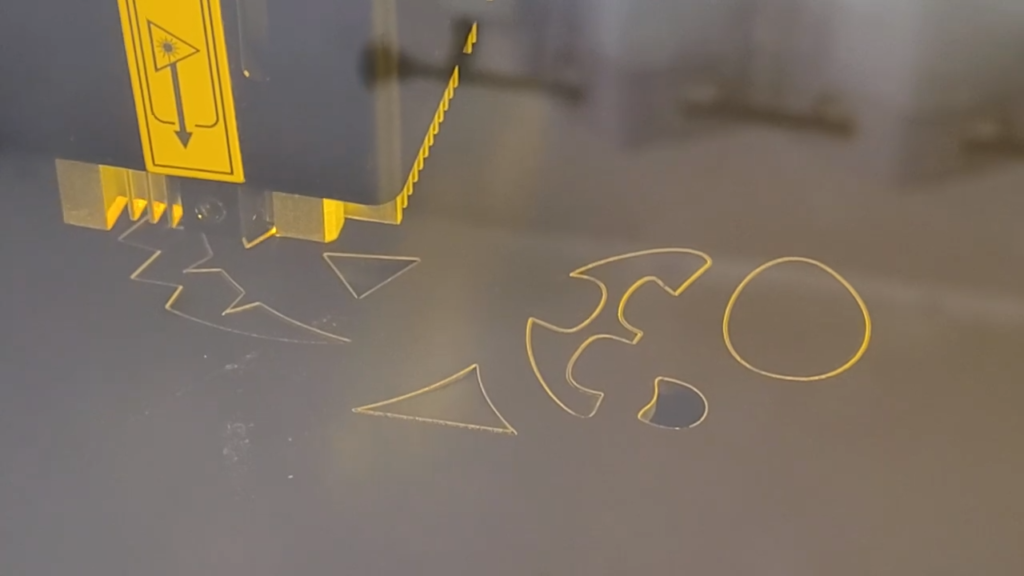
Laser cutters can handle a variety of materials, but the type of laser you have will determine what you can use. Here are some popular options:
- Wood: Great for cutting shapes and engraving signs. Plywood and hardwood are popular choices.
- Acrylic: Perfect for making colorful decorations or signs because it cuts smoothly and leaves a polished edge.
- Leather: You can use a laser to cut intricate shapes out of leather for crafts like wallets or patches.
- Fabric: Some lasers can cut fabric to make custom designs for clothing or accessories.
Remember, materials like metal or glass typically need a special type of laser, such as a fiber laser, so make sure to know what your laser is capable of.
Understanding Laser Cutting vs. Engraving
Laser cutters can both cut and engrave, but what’s the difference?
- Cutting: This is when the laser goes all the way through the material, creating a separate piece.
- Engraving: This is when the laser removes a layer of the material without cutting all the way through, leaving a design or text on the surface.
For example, if you want to make a personalized wooden sign, you would use engraving for the text and cut around the edges to create the sign shape.
Design Software You Need to Get Started
Before you can start laser cutting, you’ll need some designs. Luckily, there are lots of easy-to-use design tools available:
- LightBurn: This is one of the most popular choices for laser users. It lets you create or import designs and send them straight to your laser cutter.
- Adobe Illustrator: If you’re familiar with graphic design, Illustrator is perfect for creating detailed vector designs.
- Inkscape: This is a free alternative to Illustrator that’s beginner-friendly and works well for laser cutting projects.
Safety Tips for Laser Cutting
Safety is super important when working with lasers! Here are some tips to keep in mind:
- Never Leave It Unattended: A laser cutter can easily cause a fire if something goes wrong, so always stay nearby when it’s running.
- Wear Safety Glasses: Some lasers can be harmful to your eyes, so it’s best to wear protective eyewear, especially with diode lasers.
- Proper Ventilation: Make sure the area is well-ventilated to avoid inhaling any smoke or fumes. Some materials can produce toxic gases when cut.
Troubleshooting Common Laser Cutting Issues
If you run into problems, don’t worry—it happens to everyone! Here are some common issues and how to fix them:
- Incomplete Cuts: If your laser isn’t cutting all the way through, try increasing the power or slowing down the cutting speed.
- Burn Marks: If you’re getting unwanted burn marks, make sure your material is clean, and consider using masking tape to protect the surface.
- Alignment Issues: If your cuts aren’t lining up right, check that your laser is properly aligned and that the material is flat and secure.
Fun Project Ideas to Try First
Once you’re set up, the fun begins! Here are some beginner-friendly projects to help you get comfortable with your laser cutter:
- Custom Coasters: Use wood or acrylic to make a set of personalized coasters. You can engrave names, patterns, or even quotes.
- Name Signs: Create a wooden name sign to hang on a wall or door. These are great gifts for kids or new homeowners.
- Keychains: Cut small shapes out of acrylic or wood to make custom keychains. You can add initials or fun designs.
These projects are simple but will help you learn how to use your laser cutter effectively.
Maintenance Tips to Keep Your Laser Cutter Running Smoothly
Keeping your laser cutter in good shape will make sure it works well for a long time. Here are some maintenance tips:
- Clean the Lens: Dust and residue can build up on the lens, reducing the laser’s effectiveness. Clean it regularly with the right tools.
- Check the Alignment: Misalignment can lead to poor-quality cuts, so check the alignment occasionally, especially if you’re noticing issues.
- Empty the Bed: Remove leftover pieces from the laser bed to keep everything clean and avoid damage.
Key Takeaways
- Laser cutting uses a focused beam of light to cut or engrave materials like wood, acrylic, and leather.
- Choose the right laser cutter for your needs. Desktop CO2 lasers and diode lasers are great for beginners.
- Set up your machine properly by placing it in a ventilated area and connecting it to your computer.
- Use design software like LightBurn or Inkscape to create your projects.
- Stay safe by never leaving the machine unattended and wearing safety gear.
- Start with beginner projects like coasters or keychains to get a feel for the process.
Laser cutting is an exciting way to bring your creative ideas to life. Whether you want to make custom gifts, decorations, or even start a small business, laser cutting offers endless possibilities. With this guide, you have everything you need to get started on your laser cutting journey—happy crafting!
Cricuter’s Recommended Deals
- Sign up for Creative Fabrica’s FREE trial
- Sign up for Creative Fabrica’s discounted yearly subscription
- Shop the best deals on Cricut machines
- Accept credit card payments with your FREE Square Card Reader
- Check out my Linktree
Connect with Cricuter
Some of the links provided are affiliate links. Cricuter is a participant in the Amazon Services LLC Associates Program, an affiliate advertising program. As an Amazon Associate, I earn a commission on products purchased through these links at no additional cost to you.
